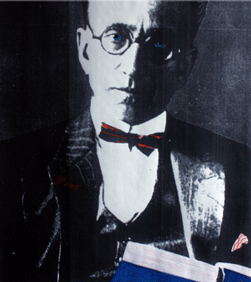Paradoxes in Islam and the Ambivalent Structuring of Islamic Legal Cultures
Frankfurt am Main: Klostermann [will be published soon]
There have been debates in recent decades about reinterpreting the Qur’ān, not leaving the sacred text of Muslims hostage to extremist readings. Even if this idea is not new, few have explored its consequences in the light of modern sciences. This book tries to demystify both Islam and Western perception of Muslims by undertaking a socio-legal deconstruction of Islamic dogmas. From the Qur’ān as nostalgia of absolute order to the legal corpus that governs the life of Muslims, the observation is the same: more than a simple ambiguity, inherent paradoxes structure the Islamic legal cultures. But where do they originate? Historical-legal analysis allows us to demonstrate that the questions concerning living together with Muslims in the West, visibility of women, otherness, fundamentalism, etc. are only an extension of ambivalent Islamic structures. This book aims to propose an alternative legal history of Islam and opens new possibilities for future developments.
About the Author:
Raja Sakrani is a jurist and a cultural science scholar. She is scientific coordinator at the Käte Hamburger Centre for Advanced Study “Law as Culture” (Bonn). In her researches, she tries to cross the characteristic phenomena of Islamic legal cultures: from the religious socialization of Muslims in Europe, to the legal and extra-legal modalities of conflict resolution, passing through the discourses on otherness and narrative memories and crossed collective identities.
Since 2021, she is teaching at IISL (Oñati) the first course on “Islamic Legal Cultures and Accommodation of Islam in Europe” and since 2020, she is member of Pluriel – University Platform for Research on Islam in Europe and Lebanon.


